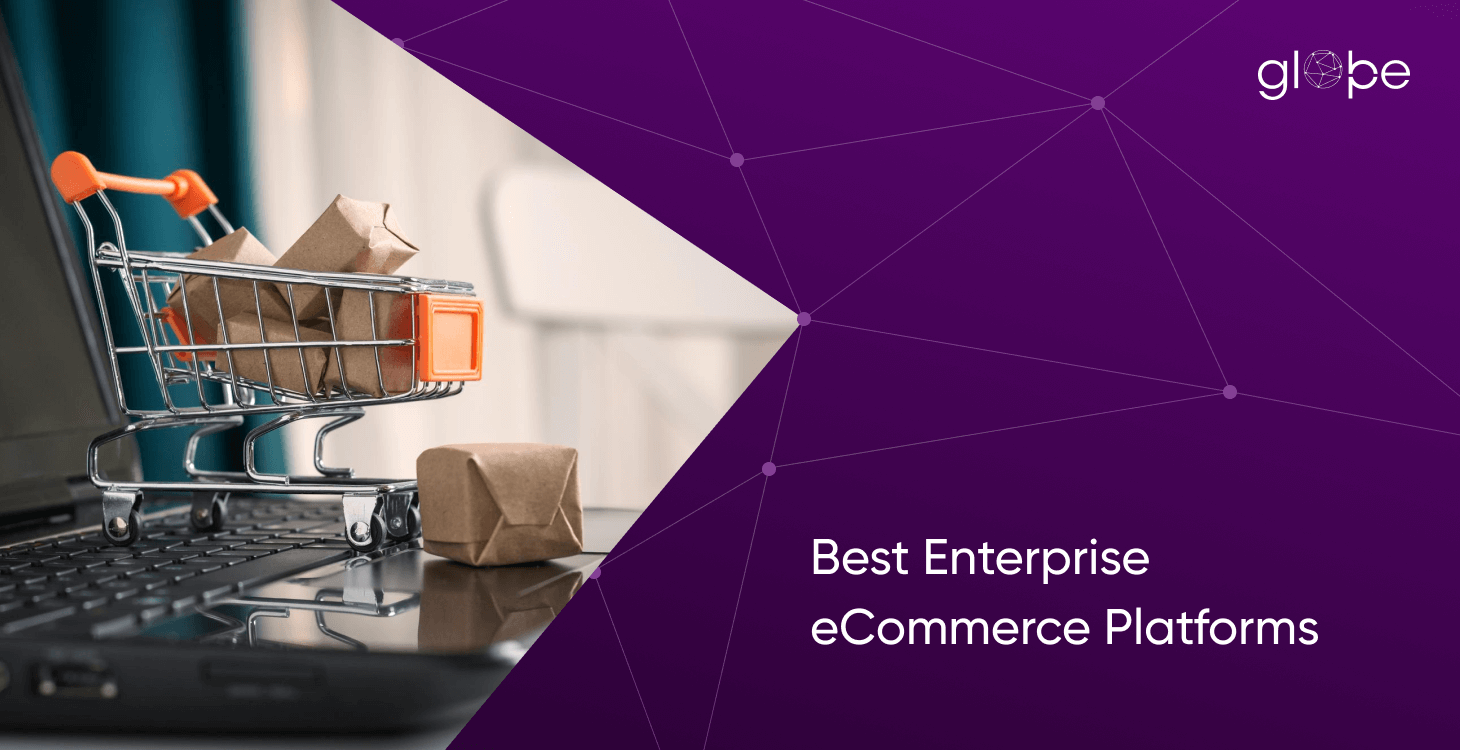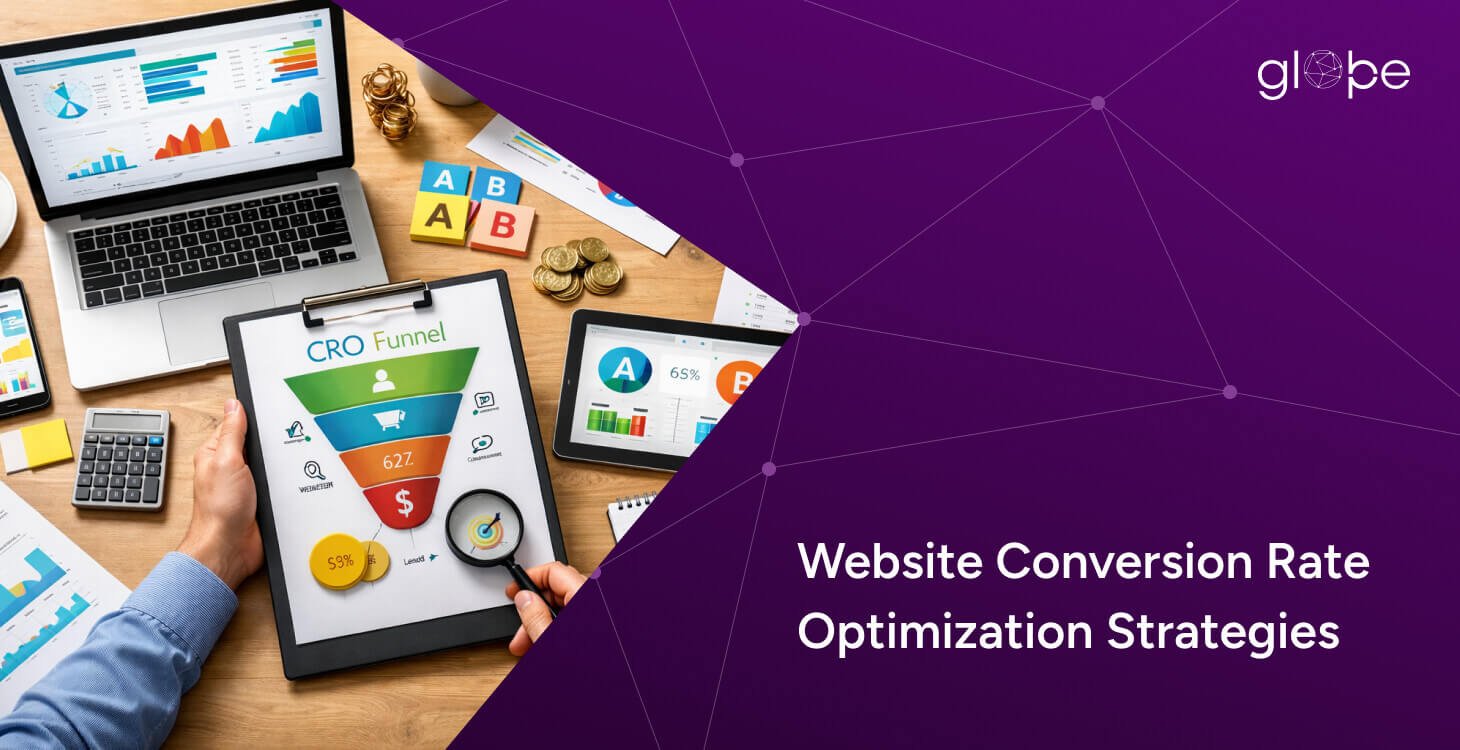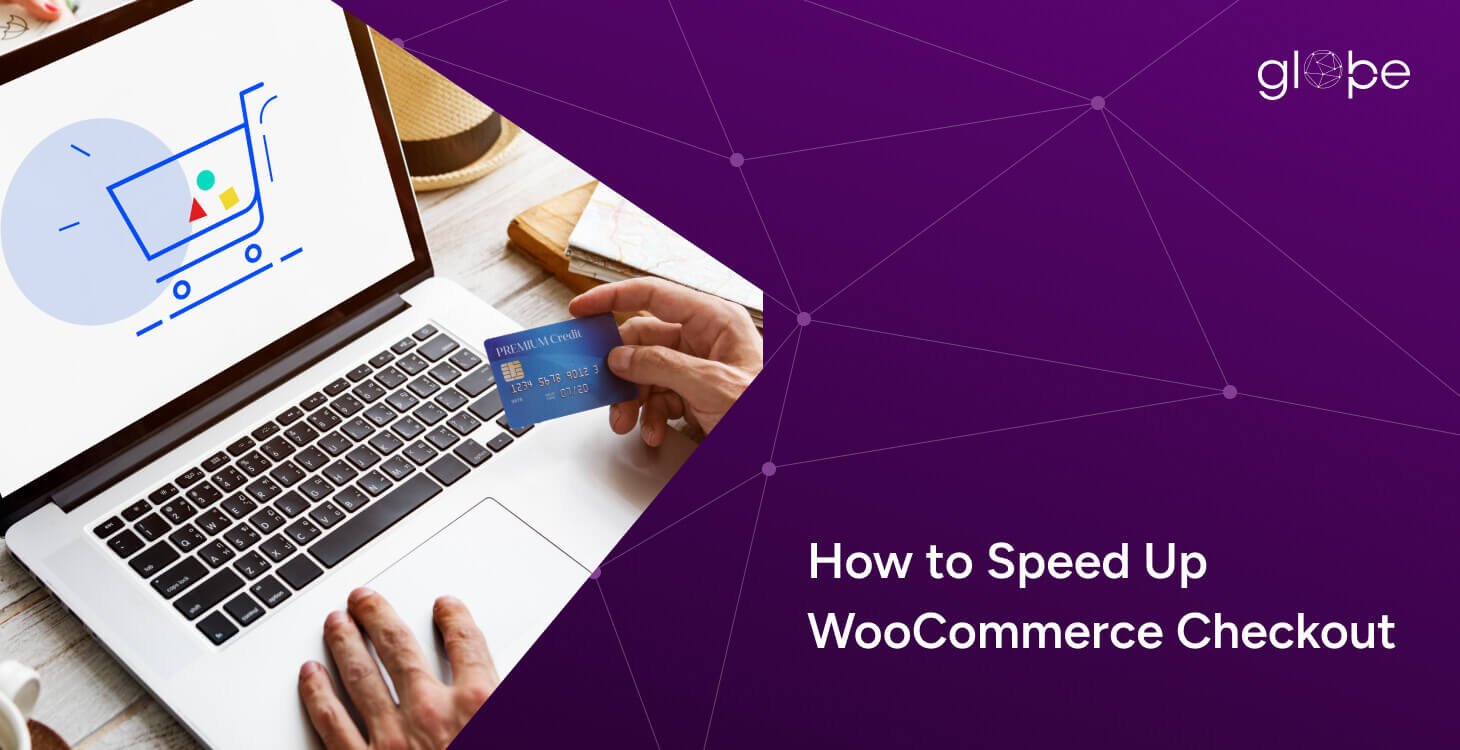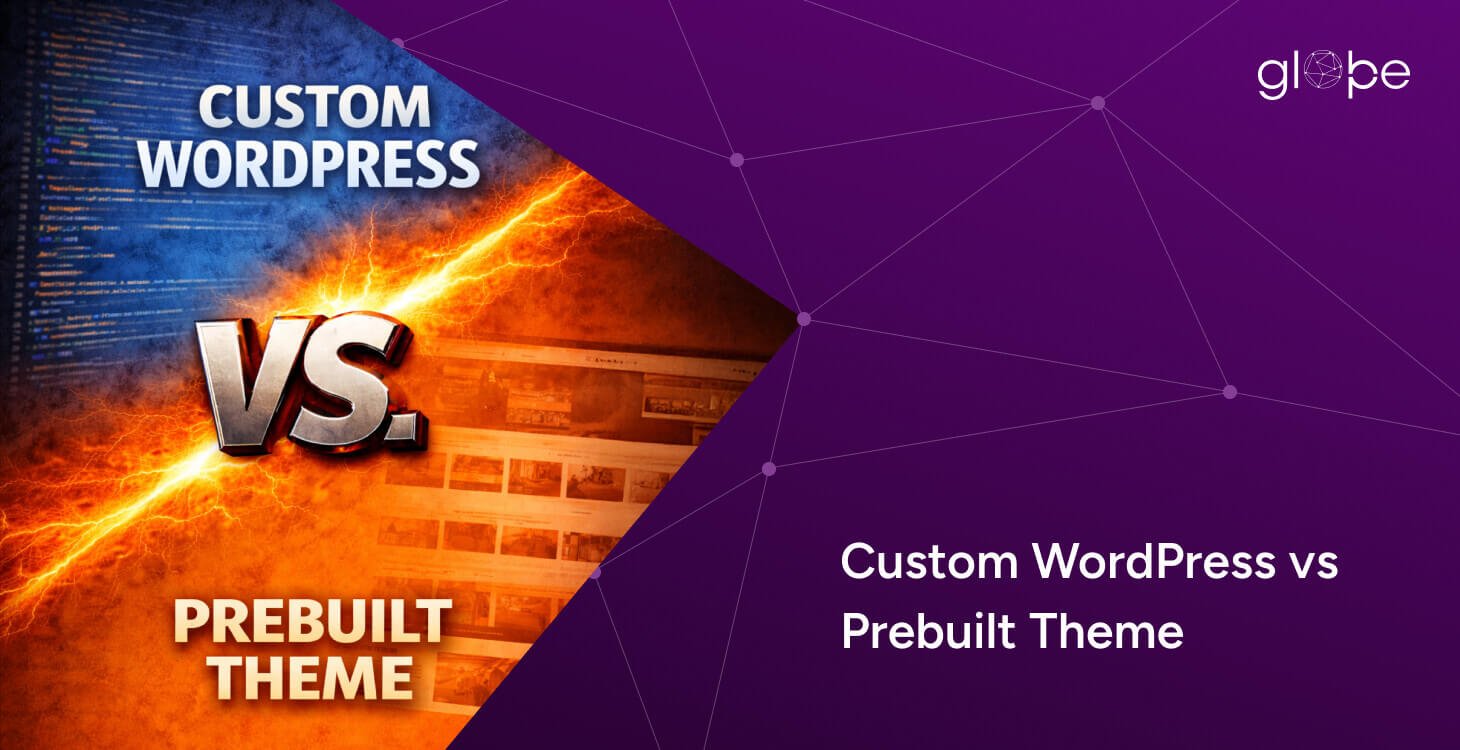
Building an online store is easy — scaling it to serve thousands of customers daily is where the real challenge begins. As your business grows, you need more than just a shopping cart; you need a platform that can handle complex product catalogs, global payments, advanced integrations, and peak-season traffic without breaking a sweat.
That’s where Enterprise eCommerce Platforms come in. These platforms are designed for large-scale businesses that demand performance, reliability, and complete control. Whether you’re a retail giant expanding globally or a fast-growing D2C brand looking to automate operations, choosing the right enterprise-grade solution can define your growth trajectory for years to come.
In this guide, we’ll break down the best enterprise eCommerce platforms that leading brands trust in 2025 — comparing their strengths, features, and scalability. By the end, you’ll know exactly which platform fits your business goals and technical requirements.
What Makes an eCommerce Platform Enterprise-Grade?
Not every eCommerce platform can handle the demands of a fast-scaling business. Enterprise-grade platforms are built for performance, flexibility, and growth, giving brands the tools to manage thousands of SKUs, complex integrations, and high-volume transactions — all while delivering a seamless user experience.
Here’s what sets them apart:
Scalability That Grows With You
An enterprise platform must scale effortlessly as your business expands — whether it’s handling festive-season spikes, new product lines, or international traffic. The best solutions use cloud-based infrastructure and CDN support to keep sites fast and reliable.
Advanced Customization and Integration
Every enterprise has unique workflows. From ERP and CRM integrations to custom APIs and headless setups, an enterprise eCommerce platform should fit seamlessly into your existing ecosystem — not the other way around.
Multi-Channel and Multi-Store Management
Enterprise brands often sell across multiple markets and channels. Look for platforms that offer multi-storefront capabilities and centralized dashboards to simplify operations and ensure consistent customer experiences.
Security and Compliance
At scale, security isn’t optional — it’s business-critical. Enterprise platforms come with advanced firewalls, PCI-DSS compliance, data encryption, and regular security patches to protect your brand and customer data.
Reliable Support and Maintenance
When downtime means lost revenue, you need expert support 24/7. Most enterprise platforms include dedicated technical support, proactive monitoring, and uptime guarantees.
Top Enterprise eCommerce Platforms in 2025
When it comes to choosing the right enterprise eCommerce platform, there’s no one-size-fits-all solution. Each platform has its strengths — some offer flexibility and control, while others focus on scalability and ease of use. Below are the best enterprise eCommerce platforms in 2025 trusted by global brands.
Shopify Plus – The Scalable SaaS Powerhouse
Shopify Plus is perfect for fast-growing brands that want simplicity and power combined. It offers cloud-based scalability, automatic updates, and integrations with major tools like ERP and CRM systems — without needing heavy technical maintenance.
Why Choose It:
- Lightning-fast performance with built-in CDN
- 99.99% uptime and enterprise-level hosting
- Advanced automation through Shopify Flow
- Ideal for D2C and B2C enterprise brands
Best For: Businesses looking for a plug-and-play enterprise solution with minimal management overhead.
Adobe Commerce (Magento) – The Customization Leader
Formerly Magento, Adobe Commerce is a powerhouse for businesses that need deep customization and flexibility. It’s built for developers and enterprise teams who want complete control over design, data, and integrations.
Why Choose It:
- Open-source flexibility with enterprise-grade features
- Advanced B2B capabilities and product personalization
- Seamless integration with Adobe Experience Cloud
- Robust security and scalability
Best For: Enterprises needing custom workflows, advanced integrations, or a fully tailored experience.
BigCommerce Enterprise – Built for Modern Commerce
BigCommerce offers a great balance between flexibility and performance. With headless commerce support and open APIs, it’s ideal for businesses seeking faster integrations and omnichannel selling.
Why Choose It:
- Headless architecture for speed and agility
- Lower total cost of ownership than many rivals
- Built-in SEO and multi-channel selling tools
- Integrates easily with ERP, CMS, and CRM platforms
Best For: Enterprises looking for a scalable, API-driven solution with quick deployment.
Salesforce Commerce Cloud – Enterprise-Ready and Data-Driven
Salesforce Commerce Cloud stands out for its powerful AI-driven personalization and CRM integration. It’s designed for businesses that prioritize data-driven customer experiences and omnichannel consistency.
Why Choose It:
- Unified B2B and B2C commerce
- Built-in AI (Einstein) for smarter recommendations
- Enterprise-grade scalability and security
- Deep analytics and customer insights
Best For: Large-scale organizations focusing on personalization and customer relationship management.
WooCommerce (on WordPress) – Flexible and Cost-Effective
WooCommerce is an excellent option for brands that want complete ownership of their store. Combined with WordPress, it gives enterprises the freedom to scale without vendor lock-in.
Why Choose It:
- 100% customizable and open-source
- Thousands of extensions and integrations
- Great for content-heavy or SEO-focused brands
- Lower running costs with managed hosting
Best For: Businesses that want a flexible, developer-friendly platform without monthly SaaS limitations.
SAP Commerce Cloud – Enterprise-Level Performance
SAP Commerce Cloud (formerly Hybris) is a trusted choice for global enterprises handling complex B2B and B2C operations. It’s built for organizations that need multi-language, multi-currency, and multi-market capabilities.
Why Choose It:
- Enterprise scalability with cloud infrastructure
- Deep ERP and CRM integration (SAP ecosystem)
- Advanced product and catalog management
- Ideal for omnichannel enterprises
Best For: Large corporations managing diverse product lines and global operations.
Comparing Enterprise eCommerce Platforms: Key Factors
Choosing an enterprise eCommerce platform isn’t just about features — it’s about finding the right balance between flexibility, scalability, and total cost of ownership. Below are the core factors every business owner should evaluate before investing in a platform.
Scalability and Performance
As your store traffic grows, your platform must scale without downtime.
- Shopify Plus and Salesforce Commerce Cloud offer built-in cloud scalability.
- Adobe Commerce and WooCommerce allow developer-led scalability for custom needs.
- SAP Commerce Cloud handles enterprise-level operations across regions and stores.
Pro Tip: Look for a platform with auto-scaling servers and content delivery networks (CDNs) to maintain page speed during high-traffic events.
Customization and Flexibility
Flexibility determines how easily you can tailor your store to your brand’s workflow.
- Adobe Commerce and WooCommerce excel in open-source customization.
- BigCommerce offers API flexibility for headless commerce setups.
- Shopify Plus provides limited but efficient customization through apps and APIs.
Pro Tip: If your business requires unique checkout experiences or ERP-level workflows, prioritize open-source or headless-ready platforms.
Total Cost of Ownership (TCO)
Beyond the initial setup, factor in hosting, plugins, maintenance, and transaction fees.
- Shopify Plus has predictable monthly pricing.
- WooCommerce and Adobe Commerce may require higher maintenance but offer greater long-term control.
- SAP Commerce Cloud and Salesforce Commerce Cloud often involve higher enterprise licensing costs.
Pro Tip: Consider both short-term deployment costs and long-term scalability expenses before finalizing your platform.
Security and Compliance
Enterprise eCommerce means handling sensitive user and payment data.
- Shopify Plus, Salesforce, and BigCommerce are PCI-DSS compliant out of the box.
- Adobe Commerce and WooCommerce allow custom security setups for advanced protection.
Pro Tip: Choose a platform that offers regular security patches, SSL, and built-in DDoS protection.
Integration and Ecosystem
Your eCommerce platform should fit seamlessly into your tech stack — not disrupt it.
- Salesforce Commerce Cloud integrates deeply with CRM and marketing tools.
- SAP Commerce Cloud connects with ERP and finance systems.
- BigCommerce and WooCommerce offer easy plugin-based integrations with most third-party tools.
Pro Tip: If your business runs on multiple systems (ERP, CRM, analytics), ensure your platform supports API-first architecture.
How to Choose the Right Platform for Your Business
Selecting the best enterprise eCommerce platform depends on your unique goals, technical needs, and growth stage. What works for a global fashion retailer might not suit a B2B manufacturing brand. Here’s how to narrow it down strategically.
Define Your Business Priorities
Start by mapping your goals — are you focusing on scalability, customization, or speed to market?
- If you need fast deployment with minimal management, Shopify Plus or BigCommerce are strong options.
- For custom features, API control, and deep integrations, Adobe Commerce or WooCommerce offer full flexibility.
- If global scalability and ERP integration matter most, Salesforce Commerce Cloud or SAP Commerce Cloud are the way to go.
Pro Tip: Don’t just choose a platform — choose one that aligns with your long-term digital strategy.
Consider Your Team’s Technical Capability
Some enterprise platforms require in-house developers, while others can be managed with minimal technical knowledge.
If your business doesn’t have a tech team, partnering with an experienced eCommerce development agency like Glopbe ensures seamless setup, migration, and ongoing support.
Plan for Integrations and Future Growth
Your platform should connect easily with CRMs, ERPs, inventory tools, and analytics platforms. An API-friendly or headless commerce setup can help your business stay flexible and future-ready.
Evaluate Ongoing Maintenance and Costs
Enterprise stores aren’t “set it and forget it.” They need continuous optimization for security, performance, and conversions. Working with a trusted partner ensures your store stays secure, fast, and conversion-focused year-round.
Conclusion – Build Your Enterprise eCommerce Store with Confidence
Choosing the right enterprise eCommerce platform is one of the most critical decisions your business will make. The platform you pick today defines your scalability, security, and customer experience for years to come.
Whether you choose Shopify Plus for simplicity, Adobe Commerce for customization, or Salesforce Commerce Cloud for intelligent automation, the real success lies in how you implement and optimize it. That’s where having the right development partner makes all the difference.
At Glopbe, we help businesses design, develop, and maintain enterprise-grade eCommerce solutions that drive measurable results. Through our comprehensive eCommerce Development Services , we assist brands in selecting the right platform, crafting seamless user journeys, and building scalable online stores optimized for performance and conversions. Our team ensures every store we create is built to perform — securely, efficiently, and at scale.
Choosing the right platform is only the first step — ensuring it’s strategically built for growth is what truly drives success.




